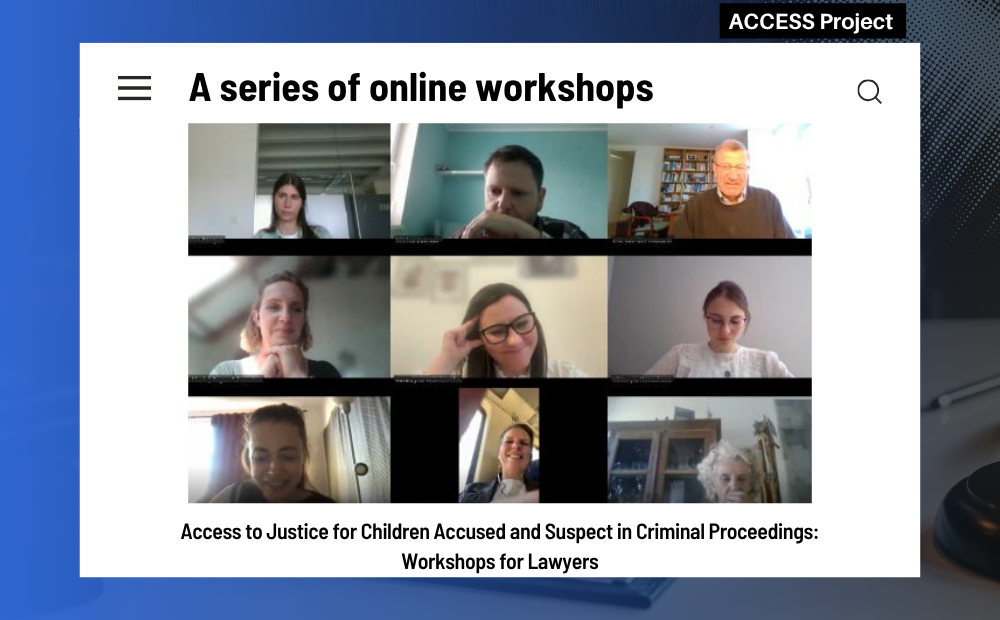In April 2025, the International Commission of Jurists (ICJ) and partners organized two online workshops for legal practitioners from six EU Member States who work with children in conflict with the law. These workshops follow up on the Transnational Exchange Roundtable held in March 2025 in Brussels and aim to explore specific issues in greater depth and strengthen legal assistance for children in conflict with the law.
Participants discussed practical challenges and good practices in ensuring access to a lawyer in juvenile justice proceedings. Key concerns included building trust between children and their legal representatives, ensuring confidential communication and enabling meaningful participation of children in decisions affecting their defence.
Lawyers also addressed a number of pertinent issues, including the transfer of children to adult courts in different jurisdictions, and the need for individual assessments to ensure that any measures taken are genuinely in the best interests of the child. One participant noted:
“Acting in the child’s best interests should be based on communication with the child, who, with the support of a lawyer, is often capable of identifying what is best for themselves.”
Participants shared innovative practices, including holding lawyer–child meetings in neutral and safe environments such as schools, especially when parents may be unsupportive or have conflicting interests.
The workshops covered practical aspects of case preparation, development of defence strategies, options for appeal, youth specialisation, and the importance of multidisciplinary cooperation. A comparative case study served as the basis for discussion, allowing participants to reflect on how their national systems respond to similar situations. The case included elements such as sanctions and measures, access to a lawyer, and the waiver of this right. Using a shared case supported cross-country comparisons and helped identify common challenges and areas for improvement.
There was strong agreement that youth specialisation and continuous training for legal professionals are essential to providing effective support. However, many participants also highlighted challenges, including limited budgets and a reluctance among some professionals to work exclusively in this field, which often offers limited financial and professional incentives.
The workshops reaffirmed that improving legal assistance for children in criminal proceedings requires more than legal expertise. It demands interdisciplinary cooperation, a willingness to listen to children, and justice systems that are accessible, specialised, and responsive to the rights and needs of children. Discussions will inform an upcoming ICJ publication on the procedural rights of children in criminal proceedings.
Background
On 22 April, the International Commission of Jurists (ICJ) launched a series of online workshops for lawyers, judges, prosecutors and law enforcement personnel, social workers and probation officers, on access to justice for children suspected or accused in criminal proceedings.
The events were organized within the framework of the ACCESS project. The project aims to foster EU-wide effective and non-discriminatory access to justice for children in criminal proceedings, and respect for children’s procedural rights amongst legal and other professionals. The ACCESS project is implemented by the ICJ in partnership with NJCM – the Dutch section of the International Commission of Jurists, Forum for Human Rights in Czechia and Slovakia, Helsinki Foundation for Human Rights in Poland, Bulgarian Helsinki Committee, Defence for Children International – Belgium, with the support of ENNHRI – the European Network of National Human Rights Institutes.
Contact
Karolína Babická, ICJ Senior Legal Advisor, karolina.babicka@icj.org
Viktoryia Konashava, ICJ Legal Researcher, viktoryia.konashava@icj.org





